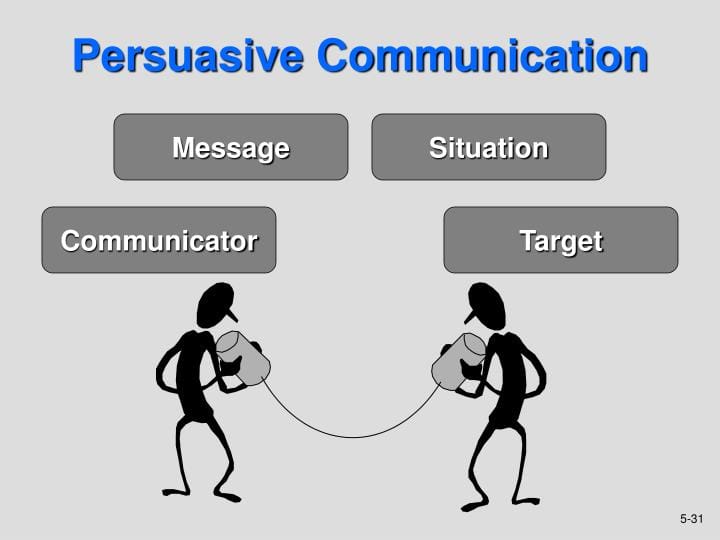The Psychology of Influence: Decoding Persuasion in Corporate Communication

In the dynamic world of corporate communication, understanding the intricacies of persuasion is paramount. Whether it's convincing stakeholders to invest in a new initiative, persuading customers to purchase a product, or rallying employees around a common goal, the ability to influence others effectively can spell the difference between success and failure. In this blog, we delve into the fascinating realm of persuasion psychology and its applications in corporate settings.
The Power of Persuasion
At its essence, persuasion is the art of changing someone's beliefs, attitudes, or behaviors through communication. It draws upon principles from psychology, sociology, and communication studies to influence others' decision-making processes. In the corporate context, persuasion plays a central role in various functions, including marketing, sales, leadership, and internal communications.
Understanding Psychological Triggers
Successful persuasion hinges on tapping into fundamental psychological triggers that influence human behavior. These triggers include factors such as reciprocity, social proof, authority, liking, scarcity, and consistency. By understanding how these principles operate, communicators can craft messages that resonate with their audience and compel them to take desired actions.

Tailoring Messages to the Audience
Effective persuasion requires a deep understanding of the target audience's needs, desires, and motivations. Corporate communicators must segment their audience and tailor their messages accordingly. This may involve conducting market research, analyzing demographic data, and employing audience personas to craft personalized and relevant communication strategies.
Leveraging Social Influence
Humans are inherently social beings, and our decisions are often influenced by the actions and opinions of others. In corporate communication, leveraging social influence can be a powerful persuasion tool. This may involve showcasing testimonials, highlighting endorsements from industry experts, or using social proof to demonstrate the popularity or success of a product or initiative.
Building Trust and Credibility
Trust is a cornerstone of effective persuasion. People are more likely to be persuaded by individuals or organizations they perceive as trustworthy and credible. Corporate communicators can build trust through transparent and authentic communication, demonstrating expertise and authority, and fulfilling promises and commitments consistently over time.
Applying Persuasion Techniques Ethically
While persuasion can be a potent tool, it's essential to use it ethically and responsibly. Manipulative or deceptive tactics can erode trust and damage relationships in the long run. Instead, corporate communicators should focus on building genuine connections, providing value, and empowering individuals to make informed decisions that align with their best interests.
Conclusion
In the corporate arena, the ability to influence others effectively is a fundamental skill that can drive business success and foster positive relationships. By understanding the psychology of persuasion and applying its principles strategically, communicators can craft compelling messages that resonate with their audience, inspire action, and ultimately achieve their objectives. Whether it's shaping perceptions, driving sales, or mobilizing teams, mastering the art of persuasion is a valuable asset in today's competitive business landscape.
Discover the realm of career insights with scale.jobs—a hub of industry trends and savvy strategies. Learn to set boundaries with finesse and cultivate a chic work-life balance. Stay informed, stay inspired – your career journey begins here




